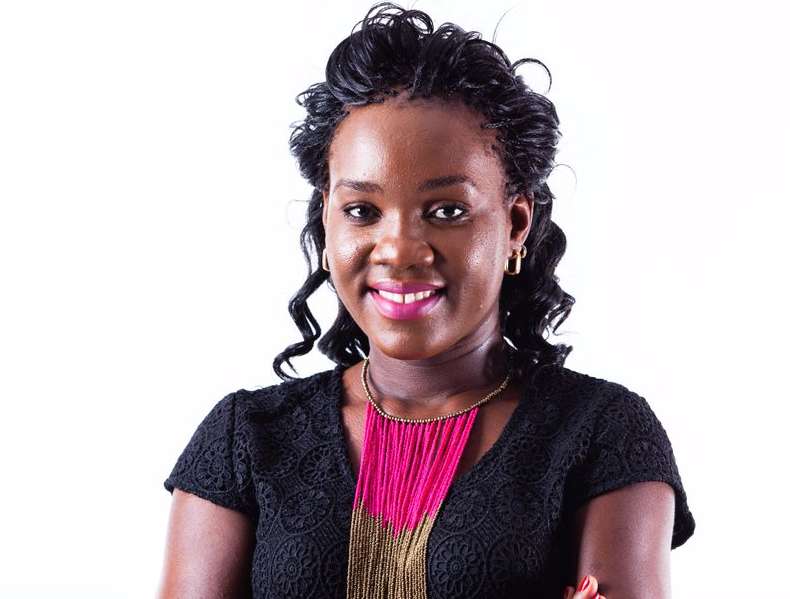Rachel Sibande Founder, mHub – Malawi
Rachel is a computer scientist and social entrepreneur from Malawi. She is the Founder of mHub, Malawi’s first technology hub and incubator for innovators and emerging entrepreneurs. A recognised technology advocate, in 2015 she was a recipient of the Anita Borg Scholarship from Google and in 2016 was named one of Africa’s 30 most promising entrepreneurs under the age of 30 by Forbes. Here she shares her journey into technology as well as her experience with juggling family, entrepreneurship and an academic career.
Excerpts below are from her interview with Eunice Baguma Ball, author of the book, Founding Women.
To succeed in tech or any other male- dominated field as a woman, you need more than the technical skills; you also need to be confident, speak up and make your presence felt.
What inspired you to set up a technology hub and how did you go about it?
In 2012 I was selected to attend the Young Africa League of Nations Program. This gave me the opportunity to travel to the US for the first time in my life. I also got the opportunity to do an internship in Chicago and it was during my six weeks there that I was first exposed to the hub concept. I visited a hub and incubator for entrepreneurs and thought it was really cool. I remember thinking to myself, “We need something like this back home. I’m going to start it”. After I got back home, I didn’t start working on the idea straight away. I procrastinated for a while until one day I read a quote that said something like, “If you don’t start now, you probably never will”. From then on, I decided I would take small steps towards making my dream a reality and I went ahead to register the hub even though I didn’t have the capital. I realised my biggest asset was my technology skills and I started volunteering on various projects to gain relevant experience. For example, I worked on a project developing a technology solution for election monitoring. We created a platform where people could send in reports of incidents via web, mobile, social media or SMS, as they happened during the elections. After I volunteered with them, the founders of this project were very impressed and offered to give me the furniture from their project when it ended to get the hub started. And that’s how I got started. Back then it was myself, one staff member and a part-time accountant. Since then we’ve grown to a team of about fourteen.
As a mother of three, how have you managed to juggle family life, running a business and pursuing your PhD?
The most important thing has been planning and accepting that there will be moments when, depending on the context, I will have to prioritize to be able to juggle the mother and career hats. For example, when I was pregnant with my first child, I got a PhD offer and after I’d had the baby I tried to get a visa for my husband and our baby so I could take them along with me. Unfortunately, their visas were denied so I tried to defer my PhD offer to another year which was also declined. In the end, I had to turn down the offer and stay to look after my baby As you can imagine, if this was the case for a man, they probably would have still been able to go ahead and take up the opportunity. I learnt from this situation that as a woman, planning is key and I decided to have all my children over the next four years, after which I could pursue my PhD which I am now doing. It is still tough because you constantly have to make sacrifices in order to strike a balance. But I believe that by looking at your priorities at any given time and with good planning, it is possible. One challenge I struggled with was experiencing a lot of guilt when I traveled while my children were little. I would feel so guilty that I often suffered from separation anxiety and would literally countdown the days until I returned. This was made worse by people who would make judgmental comments like, “You are always away from your children.” What helped me was a talk that my mentor shared with me which had professional women speaking about their experiences and what they had gone through. It made me realise that I was not alone in this and helped me not only to feel better but also to learn how to deal with it. Before that, when I felt guilty while on a trip, I would buy literally nothing for myself. I would just buy things for my children because I felt that I needed to compensate for leaving them. But I had to learn to be kind to myself because at the end of the day, I am doing this for them as well; first of all so I am financially able to meet their needs, but also to be an inspiration to them. Realising that I need to make the best out of these opportunities not only for myself but for them has helped me manage the guilt, even though I still do feel it.
